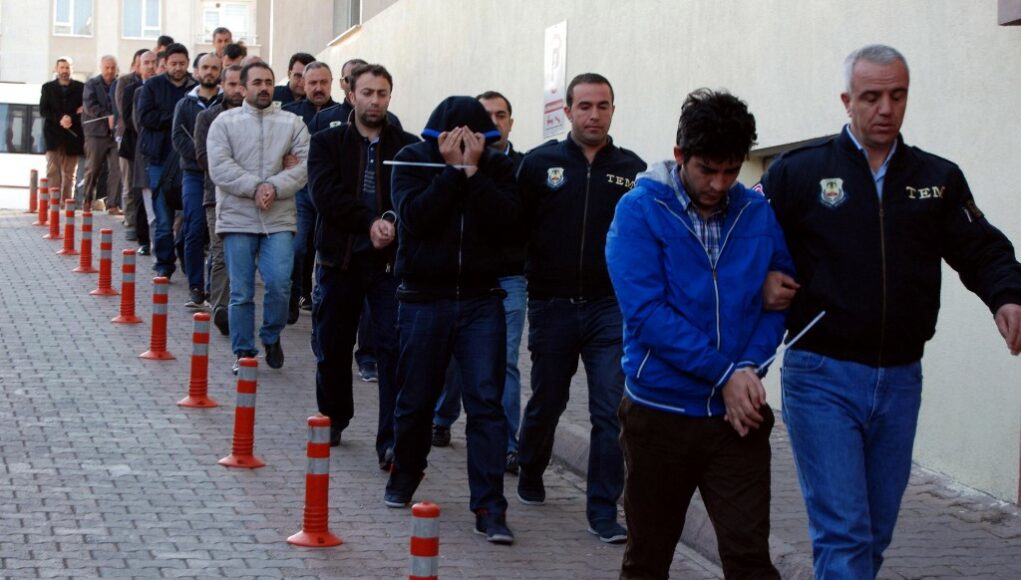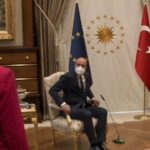A report recently released by a Brussels-based human rights monitor has pointed to the political motivation behind a mass detention campaign that has systematically targeted real and alleged members of the faith-based Gülen movement in Turkey since 2014, with a notable escalation since a failed military coup in July 2016.
The Solidarity with OTHERS, a nongovernmental organization that consists mainly of political exiles from Turkey, released the report titled “Report on Mass Detentions” authored by board member and lawyer Nurullah Albayrak on April 8, the seventh anniversary of the first mass detention operation carried out in Turkey against people with links to the Gülen movement.
Echoing a recent UN Working Group on Arbitrary Detention opinion, Albayrak argued that the campaign of mass detentions and arrests, which started after the corruption investigations of December 2013 and involved the violation of a number of domestic and international legal standards, constitutes a crime against humanity.
Turkey’s Justice and Development Party (AKP) government launched a war against the Gülen movement, a worldwide civic initiative inspired by the ideas of US-based Muslim cleric Fethullah Gülen, following corruption investigations in late 2013 that implicated then-Prime Minister and current President Recep Tayyip Erdoğan’s close circle.
The war against the movement culminated after an attempted coup in Turkey on July 15, 2016 because Erdoğan and his AKP government accused the movement of masterminding the abortive putsch and initiated a widespread purge aimed at cleansing sympathizers of the movement from within state institutions, dehumanizing its popular figures and putting them in custody.
Ankara also labels the movement as a terrorist organization, although Gülen and his followers strongly deny involvement in the coup attempt or any terrorist activity.
“Mass detentions in Turkey are carried out on the grounds of the Anti-Terror Law. … Although the crimes within the scope of the law include the acts of coercion and violence, almost none of the detainees [Gülen movement followers] have been involved in such acts,” the report noted.
“The Anti-Terror Law … doesn’t accept a thought that doesn’t include the ‘method of violence’ as a crime and the freedom to come together around a thought is not a crime either under the same law,” Albayrak said, stating that none of the acts cited as the basis for the accusations made in mass detentions in Turkey were acts of terrorism and violence.
According to the report, the activities considered as evidence against the movement and that serve as a basis for both arrest warrants and conviction verdicts include having an account at a Gülen-linked bank, downloading/using the ByLock mobile messaging app, working in, graduating from or receiving an education at Gülen-linked schools, membership in a Gülen-linked union, association or foundation, and possession of publications of some authors and/or publishers.
“In order to carry out the operations, artificial reasons that … don’t require any sanction in terms of criminal law have been produced and the acts, all of which are within the scope of fundamental rights and freedoms, have been shown as ‘criminal activities,’” Albayrak explained.
According to the Ministry of Interior, around 282,000 people were taken into custody from July 2016 until 2020, and more than 95,000 people were arrested, the report said, adding that those people were denied the most fundamental rights and freedoms during the procedures.
“As a result of the deliberate politicization of the judiciary, inhumane practices carried out by government officials such as torture, abduction, enforced disappearance in custody, and death in custody or prison have gone unpunished,” Albayrak stated, underlining that even journalists who had reported on such incidents faced with prosecution and arrest.
Referring to a 2017 report by Human Rights Watch (HRW) titled “Police Torture and Abductions in Turkey,” Albayrak argued that the lack of investigations on officials despite serious allegations and tangible evidence against them “indicates that the government bodies have an administrative practice of condoning, tolerating and even encouraging violations of the right to life and the prohibition of torture, let alone preventing them.”
“The practice of mass detention is irreversible and irreparable harm to human life … [and] must be stopped by the AKP government, taking into account the evaluation of the Working Group on Mass Detention of the UN Human Rights Council that mass detentions are ‘crimes against humanity’,” Albayrak said in the conclusion of the report.
Source:Turkish Minute



